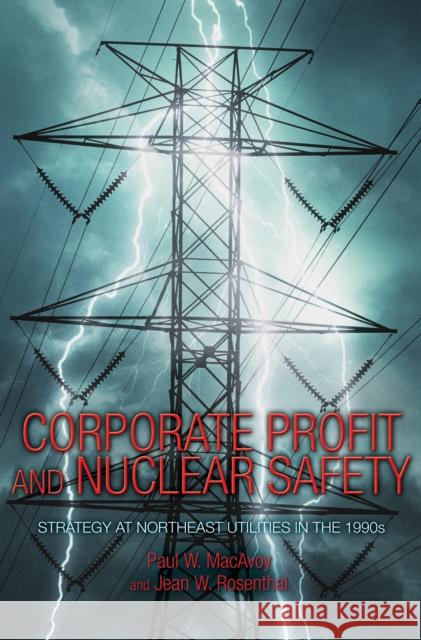Corporate Profit and Nuclear Safety: Strategy at Northeast Utilities in the 1990s » książka
Corporate Profit and Nuclear Safety: Strategy at Northeast Utilities in the 1990s
ISBN-13: 9780691119946 / Angielski / Twarda / 2004 / 153 str.
Northeast Utilities Company adopted an ambitious new competitive strategy in the mid-1980s, seeking to become the low-cost supplier in New England electric power markets bracing for deregulation. Given its high-cost nuclear facilities, doing so required a corporate turnaround. For a decade Northeast faced increasing public and employee resistance to cost cutting at its nuclear plants. Though management achieved many of its goals, curtailing outlays on nuclear operations meant high risk that the Nuclear Regulatory Commission would close the plants because of frequent, prolonged outages. This is just what happened in 1996. Did management's deliberate cost-containment strategy take nuclear operations to an inevitable regulatory shutdown, and if so, why? Was it the pursuit of executive compensation tied to cost containment that caused undue risk of regulatory shutdown?
Paul MacAvoy and Jean Rosenthal describe ten years of corporate performance preceding the shutdown, detailing aggressive executive decisions, mounting regulatory actions in response to increasingly severe operational failures, and--at the same time--overall improvement in corporate earnings, stock prices, and executive pay packages. They relate the complexities of managing declining nuclear plant operations under ever more pressing budgetary targets. Their discussion of the increasing risk of outages raises the issue of the tradeoff of profit and conservative management of hazard operations.
All the more timely in light of the massive 2003 East Coast blackout, Corporate Profit and Nuclear Safety represents a powerful and cautionary commentary on industrial practices that goes to the heart of effective corporate governance.











